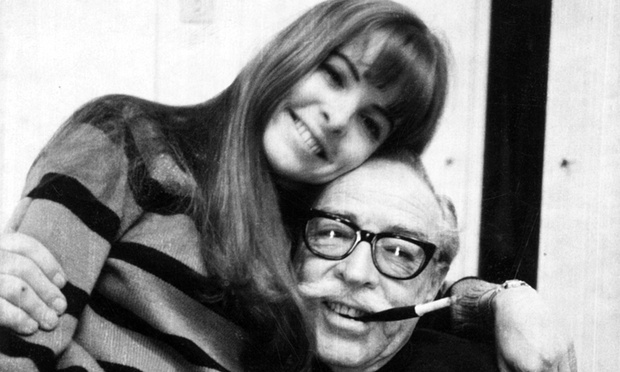Mitzi Trumbo on the father who wrote Spartacus and Roman Holiday and was a victim of Hollywood's anti-communist witch-hunts...

When Mitzi Trumbo was 15, she opened her front door to find one of Hollywood's most famous actors standing outside. It was Kirk Douglas. A few days later, Laurence Olivier turned up. "He outstretched his hand for me to shake and the dog got in the way and he tripped over."
Fifty-five years later, she still remembers how starstruck she felt. But besides the excitement, what Mitzi most recalls from those encounters was a feeling of frustration that she couldn't brag about it to her high-school friends. Her father, Dalton Trumbo, was one of the most famous Hollywood screenwriters of his generation, both for his work (he wrote the Oscar-winning Roman Holiday, starring Audrey Hepburn and Gregory Peck, and several novels) and for his leftwing politics.
In 1947, when anti-communist fear took root in America, Trumbo was called to testify before the House Un-American Activities Committee. He refused to give the names of colleagues with supposedly communist sympathies and was imprisoned for 11 months. On his release, he was blacklisted and could not work under his own name. He continued to produce uncredited scripts and his three children - Nikola, Mitzi and Christopher - were told not to speak about anything that went on at home.
When Mitzi opened the door to Douglas and Olivier, her father was writing the screenplay for Spartacus, which would go on to become one of the biggest box office hits of all time. Trumbo was publicly credited as its writer on the film's release in 1960: an act that effectively broke the blacklist.
The extraordinary story of Trumbo's defiance in the face of politically motivated adversity has now been made into a film, with Breaking Bad's Bryan Cranston in the title role and featuring Helen Mirren and John Goodman.
"It's an important story to get out there," says Mitzi, 70, speaking from her home in the Bay Area of San Francisco. "Jay Roach [the director] and Bryan Cranston have done a wonderful job. They really care about it."
Seeing her father, who died in 1976, portrayed on screen was a surreal experience. Cranston bore a startling physical resemblance to Trumbo, "especially when they had him older. At times, I would be on set and I would say: 'Gosh, that's so like him.' "
Other aspects rang less true. "There's a scene where he takes me and my sister for ice-cream," says Mitzi. "I was laughing with her afterwards saying, 'That would never have happened!' My father worked all the time and if we had issues we went to our mum. But he was fiercely entertaining. We learned about language and politics and how to think from him. That was pretty great."
The paranoia whipped up by the Republican Senator Joseph McCarthy throughout the 1950s had a devastating impact on many Americans unfairly accused of leftwing subversion. In Hollywood, more than 300 artists were boycotted by the studios. Some, such as Charlie Chaplin, Orson Welles and Paul Robeson, emigrated or went underground.

